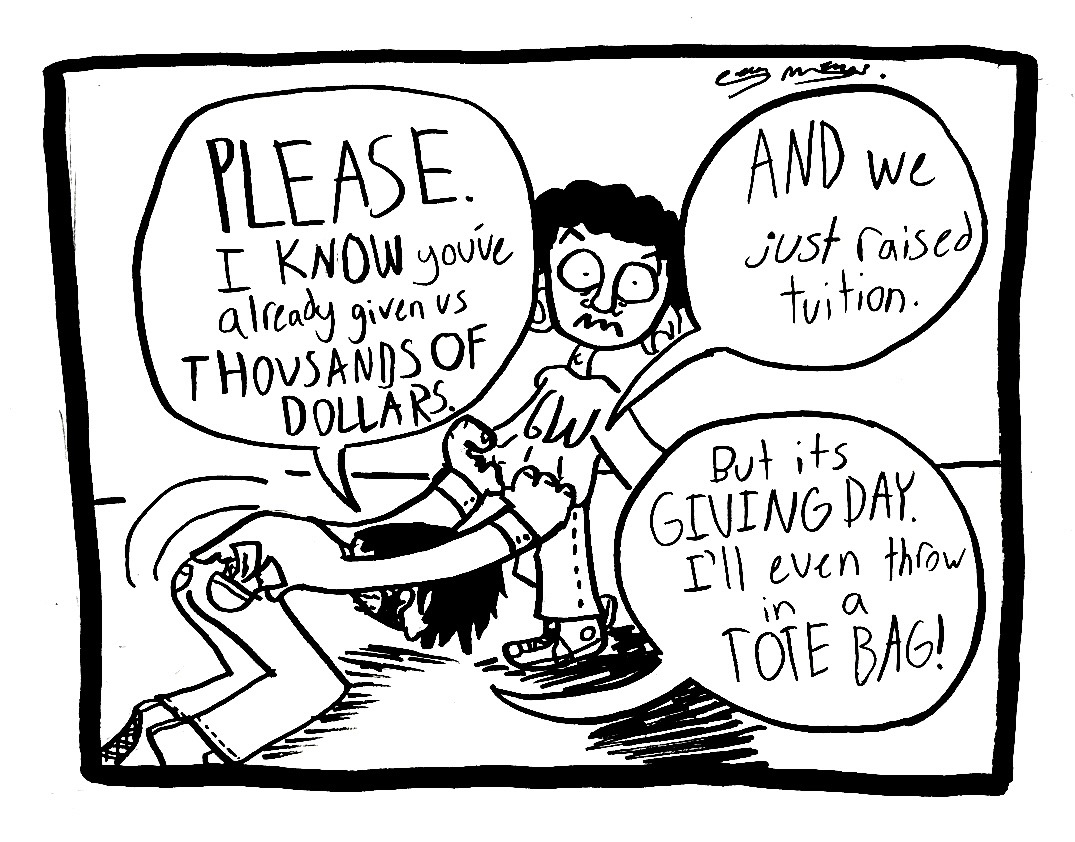Between Democrats and Republicans who blame each other for threatening democracy to candidates running for office who deny the results of the previous presidential election, the 2022 midterms are primed to be the most contentious and most consequential in recent U.S. history. Like many of GW’s politically active students, I’m excited to have cast my first general election ballot, but I’m anxious that a hyper-partisan political scene will scrutinize my vote and demand loyalty that I’m not ready to give.
I’m an unaffiliated voter – my political values don’t strictly align with any one side of the two-party system. While I may support a public health care option, I’m not convinced it would be beneficial in an evolving public health sphere. And though I see the need for a civilian law enforcement branch, I still think reform is desperately needed to minimize and eliminate abuses of power. In a political landscape quick to label people based on the various beliefs they hold, independent voters should be respected as their own political identity.
Group affiliations built on loyalty are a natural part of human history, but hyper-partisan commitment crosses into dangerous territory. A Cambridge University study found that such tightly wound political ties can lead voters to care less about democratic values than their party’s victory when considering their next vote. I left the Republican party in my early teens when Republicans were unwilling to accept me as a “real” Republican because my views on some issues, like transgender rights and abortion, deviated from the party line. But I wasn’t flipping to the Democrats anytime soon – they asked for that same loyalty, unwilling to accept some of my views on government spending and the transition to green energy.
Neither party is a good home for voters like me whose opinions are based on a utilitarian understanding of political issues. I believe in broader ideals like freedom, security and justice applied to individual circumstances, not sweeping ideological mandates centered around the notion that a political party holds a monopoly both on the truth and moral righteousness.
Democrats and Republicans traffic narratives of heroes and villains that create a fight for the “soul of the nation” – a metaphorical battle that may rally voters but muddles the real-world implications that their policies will have on access to food, housing or adequate medical care for the sake of total party victory. Worse still, it feeds into a spiteful political discourse that is not reflective of reality and dehumanizes our political opposition.
Partisan loyalty was the standard in my small, western North Carolina hometown. In high school, my peers agreed that if I voted for anyone besides Joe Biden or Donald Trump in the 2020 presidential election, whom I felt at the time I could not support, my vote would be meaningless or purposefully spiteful to the candidate they preferred. On virtually every issue, they viewed one side as simply right and the other as backwards or morally misaligned. And the concept that there could be more than two perspectives on an issue was practically nonexistent.
These accusations often leave me with a lot of stress that I have to be particular in how I vote. I’m not alone in feeling this stress, either – 35 percent of Americans identify as Independents, according to an October 2022 Gallup poll. But when both the former and current president exclaim the other party is only capable of bad things, they’re signaling that Independent voters ought to come home to their side. The weight of expectations from both Republicans and Democrats or conservatives and liberals can lead many Independents to side with a party even if their more personal values don’t adhere to the party platform. But others may feel that the pressure to vote the “right” way is too much and recuse themselves of their vote entirely.
Despite generally outnumbering Republicans and Democrats every year since 2004, there’s a caveat to the Independent label. Partisan affiliation polls lump us into one of the major parties and give the impression that nobody takes our independence seriously. Even if you are an Independent who feels generally more aligned with one side or the other, that shouldn’t mean you have to give up some of your identity to answer a call for loyalty on the side you may sometimes agree with.
But the solution is not to avoid voting. In a political field rife with hyper partisanship that’s hurting all voters, Independents deserve to have their own identities. The United States political system would benefit from a more diversified electorate that doesn’t lump themselves with one side or the other, but thinks and votes on its own accord. Democrats and Republicans alike should approach Independents as people with their own identity – we’re not pawns in the binary two-party system or just simply their political opposition.
It’s okay to be a part of a tribe of ideas – it helps us understand a world that’s more complex than us. But the narrative that one side or the other is the threat to democracy alone and must be eradicated isn’t healthy. If we take the time to understand the political motivations of voters with contrasting identities instead of turning them into faceless villains, we can better hold our political system accountable for its actions, foster a more inclusive voting environment and preserve our democracy.
Noah Hughey, a freshman, is an opinions writer.




